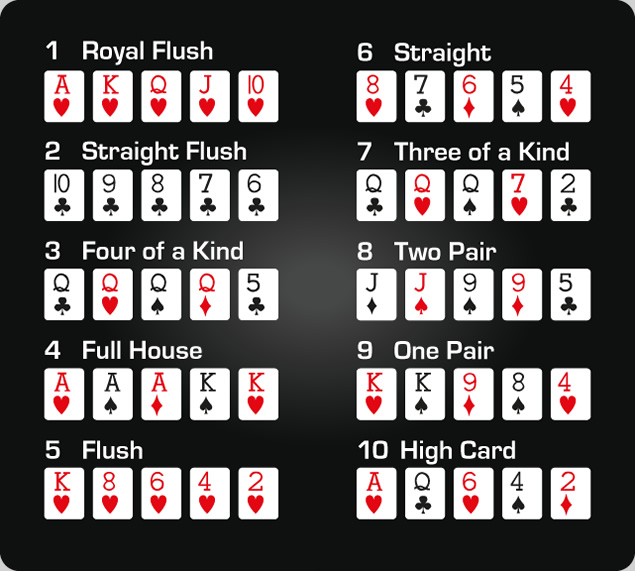
Poker is a card game that can be played at casinos, poker clubs, or at home. It is a popular game and has become part of American culture. It is a skill-based game that requires strategy and skill to play well.
There are a number of different rules and regulations that need to be followed when playing poker. These can vary from game to game but are important to understand if you are trying to learn the game and improve your skills.
In a round of poker a hand is dealt to each player and everyone has the opportunity to bet. Each player can call the bet, raise the bet, or fold their hand. The highest ranked hand wins the pot.
The first betting interval, called the flop, is when each player gets two cards. The second betting interval, called the turn, is when the dealer puts an additional card on the board and everyone has a chance to bet/check/raise/fold. The final betting interval, called the river, is when all players get a fifth card on the board and again everyone has the opportunity to bet/check/raise/fold.
Bluffing is a form of deception in which a player bets strongly on a weak hand to induce opponents with superior hands to fold them. This is often done to increase the size of the pot, though it can also be used to inflate a weak hand.
Another form of deception is slow-playing, in which a player bets slowly and carefully in order to hide their strength and intimidate opponents. This technique can be effective, but it is not recommended for novice players.
When you’re not sure what to do, try asking someone else at the table for advice. This is a good way to learn from others’ mistakes and to improve your own skills.
It is always important to understand how to bet and raise properly. This is because it can make a difference in the outcome of a hand.
There are many different ways to bet and raise in poker, but there is a certain code of etiquette that you should follow to ensure that the game runs smoothly. If you do not adhere to these rules, you could find yourself in an embarrassing situation where people feel compelled to call your bets or raises.
If you are new to the game of poker, it is best to play with smaller stakes until you have a good grasp of the rules. This will allow you to learn and practice while enjoying the experience without risking too much money.
Once you’ve mastered the basics of the game, you can start looking for higher stakes games and professional tournaments where the stakes are higher and where you can win more cash. This is where a lot of strategy comes into play, as you will need to be more strategic in your betting decisions and your ability to read other players’ actions.
Poker is a challenging and mentally taxing game, so it is important to play only when you are feeling good. This will help you avoid letting stress, fatigue or anger take over your mind and affect your performance.